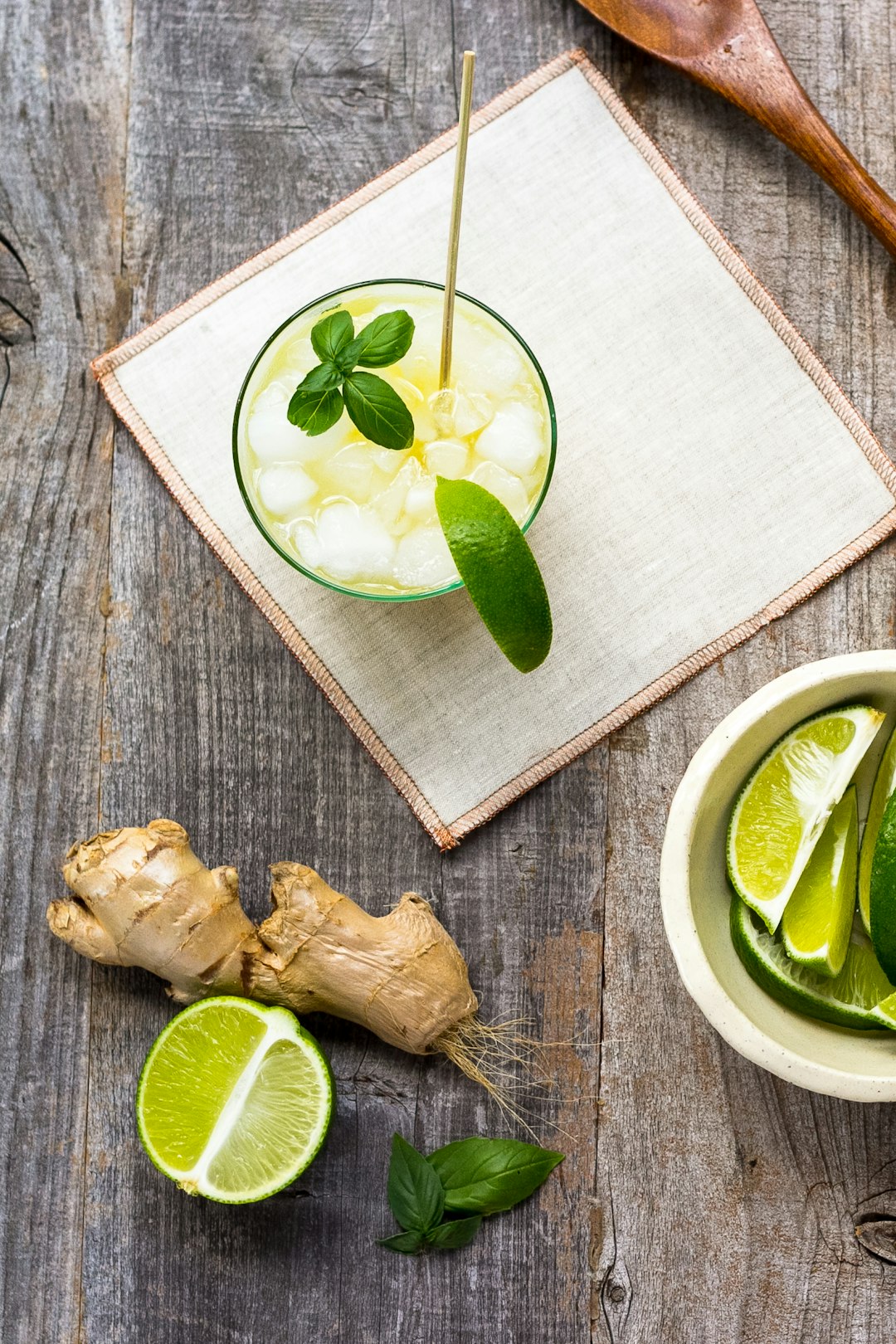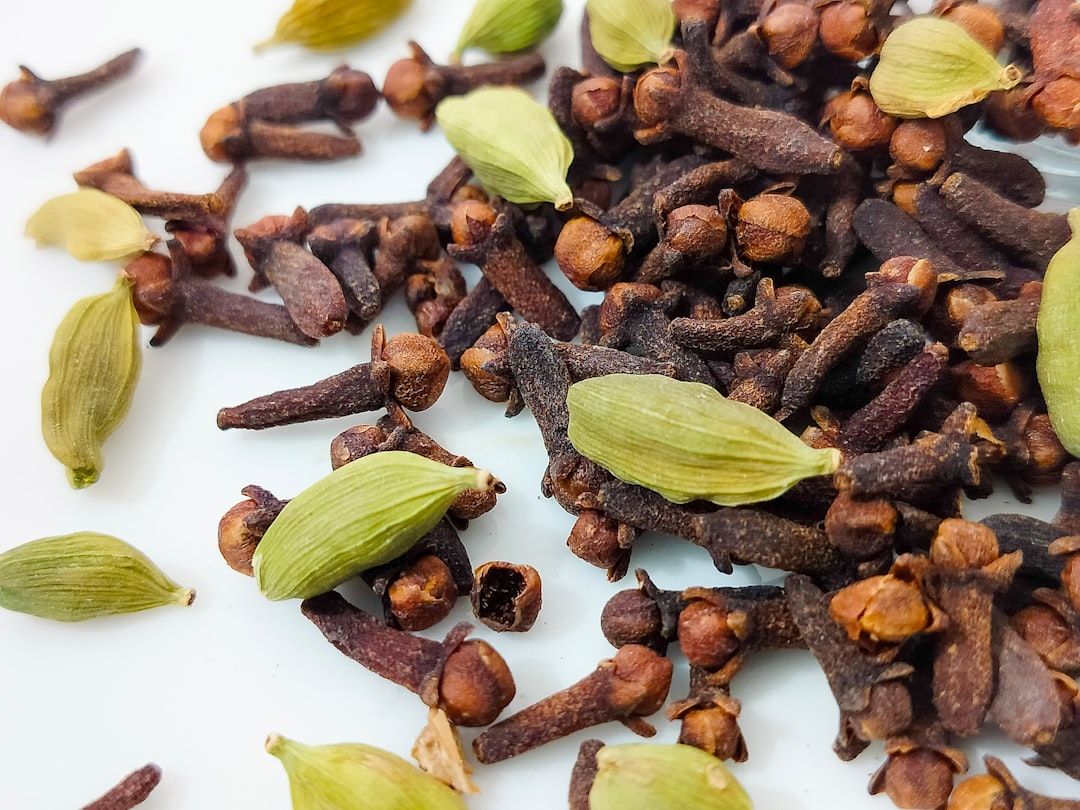Spices for Mental Resilience: Unlocking the Power of Nature’s Healing Ingredients
Mental resilience is essential for maintaining focus, emotional stability, and overall cognitive health. Fortunately, nature offers powerful tools to support mental well-being. Spices like turmeric, ginger, and cinnamon have been used for centuries, not only for their flavor but also for their remarkable ability to combat inflammation and enhance cognitive function.

As research continues to unravel the connection between chronic inflammation and mental health, these humble yet potent spices are emerging as natural allies in the fight for mental clarity, emotional balance, and overall brain health. In this exploration, we dive deep into the science and benefits behind these spices, revealing how they work together to support a strong, resilient mind capable of withstanding the pressures of modern life.
Understanding the Link Between Inflammation and Mental Resilience
Inflammation has long been associated with physical health, but its impact on mental well-being is gaining more attention. Chronic inflammation can disrupt brain function, leading to mood swings, anxiety, and cognitive decline. In recent years, scientists have discovered that inflammation in the brain can affect neurotransmitter balance, which influences our emotions and mental clarity. This connection highlights why addressing inflammation is essential for fostering mental resilience.
When inflammation becomes persistent, it can damage brain cells and interfere with the production of important neurotransmitters like serotonin and dopamine. These neurotransmitters play a critical role in regulating mood and cognitive processes. Chronic inflammation is linked to conditions such as depression, anxiety, and even neurodegenerative diseases. By targeting inflammation, we can potentially reduce the risk of these mental health challenges and promote a more resilient mind.
Spices for Mental Resilience: A Natural Solution
Spices for mental resilience provide a natural, effective way to combat inflammation. They contain compounds with anti-inflammatory properties that can reduce the inflammatory markers in the body and brain. By incorporating these spices into daily routines, we can support both physical and mental health. Turmeric, ginger, and cinnamon, for example, contain potent compounds that help lower inflammation and protect the brain from oxidative stress. These spices not only enhance the flavor of meals but also provide a tangible benefit to mental clarity and emotional stability.
Turmeric: The Golden Root for Inner Strength
Turmeric, widely celebrated for its vibrant yellow color and distinct flavor, is one of the most powerful spices for mental resilience. The key to its mental health benefits lies in curcumin, its active compound, which has been shown to have potent anti-inflammatory and antioxidant properties. Chronic inflammation in the brain can contribute to cognitive decline and mood disorders. Curcumin works by reducing these inflammatory markers, helping to maintain a clear, stable mind.
Research has demonstrated that curcumin can influence the production of key neurotransmitters like serotonin and dopamine. These neurotransmitters play a critical role in regulating mood, and their balance is essential for emotional well-being. By lowering inflammation, turmeric helps create an environment in the brain that supports healthy emotional responses and mental clarity. The anti-inflammatory effects of turmeric also reduce the risk of brain-related diseases, making it a valuable tool in maintaining long-term mental resilience.
Incorporating Turmeric for Mental Resilience
Using turmeric as part of a daily routine is an easy and effective way to combat mental fatigue and improve focus. Whether added to a morning smoothie, a warm cup of tea, or incorporated into savory dishes, turmeric can fit seamlessly into a variety of meals. By making this spice a regular part of your diet, you provide your brain with a natural, consistent source of anti-inflammatory compounds that promote mental resilience.
Ginger: A Spicy Shield for Emotional Balance
Ginger, a widely used spice known for its warm, spicy flavor, offers powerful anti-inflammatory properties that benefit both the body and mind. Often considered one of the most effective spices for mental resilience, ginger has been shown to help regulate emotional responses to stress. Its bioactive compounds, particularly gingerol, work to reduce inflammation and promote blood flow, which plays a crucial role in maintaining mental clarity and emotional balance.

How Ginger Promotes Mental Resilience
Ginger’s ability to support mental resilience comes from its anti-inflammatory effects on the brain. Chronic stress can lead to elevated inflammation, which disrupts neurotransmitter function and mood regulation. Ginger helps to combat this by reducing pro-inflammatory cytokines and promoting a healthier, more stable mental environment. Additionally, ginger has been shown to lower cortisol levels, the hormone responsible for stress, helping individuals manage anxiety and stress more effectively.
Including ginger in your daily routine can have profound effects on your emotional well-being. Whether consumed fresh in smoothies, added to warm teas, or sprinkled on savory dishes, ginger’s versatility makes it an easy addition to any diet. As a regular part of a balanced lifestyle, ginger supports the brain's ability to handle stress, reduce anxiety, and enhance mental resilience. By embracing ginger as part of your spice repertoire, you can strengthen your mental and emotional health over time.
The Role of Cinnamon in Sharpening Mental Clarity
Cinnamon, often associated with comforting baked goods, is another spice that significantly contributes to mental resilience. This aromatic spice is packed with antioxidants and anti-inflammatory compounds that not only enhance physical health but also support mental clarity and cognitive function. Cinnamon's ability to regulate blood sugar levels makes it particularly beneficial for emotional balance. Fluctuating blood sugar levels can lead to mood swings and cognitive fog, but cinnamon helps stabilize them, ensuring a more focused and resilient mind.
Cinnamon's powerful anti-inflammatory properties extend to the brain, where it helps reduce oxidative stress, a major contributor to mental decline. By protecting brain cells from damage, cinnamon promotes overall cognitive health and enhances mental clarity. The compounds in cinnamon also support the production of brain-derived neurotrophic factor (BDNF), a protein that plays a key role in brain function and resilience. Consuming cinnamon regularly helps optimize brain function, boosting memory, focus, and emotional stability.
Incorporating Cinnamon for Mental Resilience
Adding cinnamon to your daily routine is a simple and effective way to improve mental clarity and emotional resilience. It can be sprinkled on oatmeal, mixed into smoothies, or used in savory dishes. Whether consumed as a spice or enjoyed in tea form, cinnamon provides a subtle yet potent way to support brain health. With its ability to stabilize blood sugar and protect the brain from oxidative stress, cinnamon stands as a key player among spices for mental resilience.
Black Pepper: The Enhancer of Mental Vitality
Black pepper, often seen as a simple seasoning, holds significant potential as one of the most overlooked spices for mental resilience. Its active compound, piperine, does much more than enhance the flavor of dishes. It also increases the bioavailability of other nutrients and compounds, such as curcumin from turmeric, improving their absorption and effectiveness in the body. This makes black pepper an essential companion to other anti-inflammatory spices, boosting their mental health benefits.
How Black Pepper Supports Brain Function
Beyond improving nutrient absorption, black pepper plays a direct role in enhancing brain health. Studies have shown that piperine has neuroprotective properties, helping to preserve brain cells and support cognitive function. By reducing oxidative stress and inflammation in the brain, black pepper contributes to maintaining mental clarity, focus, and resilience in the face of stress. Its ability to enhance blood flow also supports better oxygen delivery to the brain, which is essential for optimal mental performance.
Adding black pepper to your meals is an easy yet effective way to enhance the effectiveness of other spices for mental resilience. It pairs seamlessly with a variety of dishes, from savory stews to smoothies, providing an extra layer of brain-boosting power. By including black pepper in your daily diet, you ensure that your brain receives the full benefits of the spices it accompanies. With its powerful combination of bioavailability-enhancing and neuroprotective properties, black pepper is a valuable tool in fostering lasting mental resilience.
Cloves: A Powerful Antioxidant for Brain Health
Cloves, often used in holiday dishes and teas, are among the most potent spices for mental resilience. These small, aromatic buds are packed with antioxidants that help fight oxidative stress, a key contributor to mental decline and mood disturbances. The active compound eugenol in cloves has been found to possess significant anti-inflammatory and neuroprotective properties, supporting brain health and cognitive function. By reducing oxidative stress, cloves help maintain a resilient mind and protect against cognitive aging.
How Cloves Contribute to Cognitive Health
Cloves play a critical role in protecting the brain from damage caused by free radicals. These free radicals can damage brain cells and contribute to neurodegenerative diseases. The antioxidants in cloves help neutralize these free radicals, reducing the risk of conditions such as Alzheimer’s and Parkinson’s disease. Additionally, cloves support healthy circulation, ensuring the brain receives sufficient oxygen and nutrients for optimal function. By incorporating cloves into your diet, you provide your brain with a powerful shield against cognitive decline.
Incorporating cloves into your diet can be as simple as adding them to your favorite beverages or dishes. They pair well with both sweet and savory recipes, from spiced teas to curries. The rich, warm flavor of cloves makes them a delightful addition to meals and a potent tool for enhancing mental resilience. By regularly consuming cloves, you strengthen your brain’s ability to combat oxidative stress, maintain cognitive function, and foster lasting mental clarity and emotional stability.
Cardamom: A Gentle Spice for Stress Relief
Cardamom, known as the "queen of spices," offers more than just a fragrant addition to food. As one of the best spices for mental resilience, cardamom has long been valued for its ability to reduce stress and promote emotional balance. Its soothing properties come from its unique combination of anti-inflammatory and adaptogenic compounds. These properties help the body manage stress, reduce anxiety, and improve mental clarity, making cardamom an essential ally for maintaining emotional resilience.

How Cardamom Supports Emotional Balance
Cardamom’s ability to support mental resilience is rooted in its adaptogenic qualities. Adaptogens are natural substances that help the body cope with stress and restore balance to the nervous system. By reducing the levels of stress hormones such as cortisol, cardamom aids in calming the mind and promoting relaxation. This makes it particularly beneficial for individuals facing chronic stress or emotional turbulence. In addition to its calming effects, cardamom also improves circulation, ensuring that the brain receives the oxygen and nutrients it needs for optimal function.
Incorporating cardamom into your daily routine is a simple way to boost mental resilience. It can be added to teas, smoothies, or baked goods, providing a gentle, calming effect. Whether enjoyed in a warm chai or as a subtle flavor in savory dishes, cardamom enhances both the taste and the mental health benefits of any meal. By regularly consuming cardamom, you can help your body and mind respond better to stress, improving emotional stability and overall mental resilience.
How Anti-Inflammatory Spices Work Together for Maximum Effect
While each spice offers unique benefits, their combined effects create a powerful synergy when it comes to mental resilience. The use of multiple anti-inflammatory spices in your diet amplifies their individual benefits, helping to combat inflammation more effectively and support brain function. Spices for mental resilience, when used together, help regulate mood, improve focus, and enhance emotional balance. Their combined action also ensures that the brain receives a consistent supply of nutrients and antioxidants necessary for optimal health.
When combined, spices such as turmeric, ginger, cinnamon, and black pepper work in harmony to reduce inflammation in the brain. Inflammation is a primary contributor to mental fog, anxiety, and cognitive decline. By incorporating these spices into your diet regularly, you support not only physical health but also mental clarity and resilience. The antioxidants and anti-inflammatory compounds found in these spices work together to combat oxidative stress and protect brain cells, ensuring that mental performance remains sharp and focused.
Maximizing the Benefits of Spices for Mental Resilience
Incorporating a variety of spices into your daily routine offers a holistic approach to mental health. Each spice brings its own unique set of benefits to the table, and when combined, they complement one another for maximum effect. Spices for mental resilience should be included in your meals as often as possible, whether through curries, smoothies, or teas. By doing so, you strengthen your mental and emotional well-being, providing your body and brain with the tools needed to thrive in a stressful world.
Integrating Spices for Mental Resilience into Your Daily Routine
Incorporating spices for mental resilience into your everyday meals is an easy and enjoyable way to support your mind. By adding anti-inflammatory spices like turmeric, ginger, and cinnamon to your diet, you take a proactive approach to mental health. These spices not only enhance the flavor of your food but also provide long-term benefits for cognitive function, mood regulation, and emotional stability. The simplicity of including these spices in your meals makes it accessible to anyone looking to improve their mental resilience.
Adding spices for mental resilience to your diet doesn’t have to be complicated. You can begin by incorporating turmeric into soups, stews, and curries, or adding a dash of cinnamon to your morning oatmeal. Ginger can be easily included in smoothies, teas, or even as a topping for roasted vegetables. The versatility of these spices ensures that they can seamlessly fit into any meal, making it simple to reap their mental health benefits without any extra effort. By consistently including them in your daily routine, you build a foundation for mental resilience that lasts.
The Long-Term Benefits of Consistent Spice Consumption
Consistent use of spices for mental resilience can have profound, long-lasting effects on your mental health. Over time, their anti-inflammatory properties reduce stress levels, enhance brain function, and protect against cognitive decline. Whether you start with small changes like adding ginger to your morning tea or turmeric to your dinner, the key is consistency. The more regularly you incorporate these spices into your diet, the stronger your mental resilience will become, helping you to better manage stress and navigate the challenges of everyday life.
